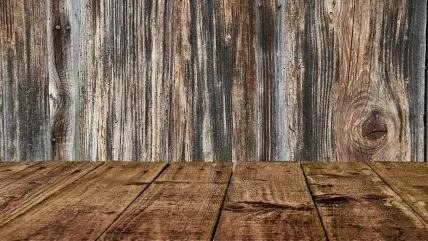
The last Ligna exhibition probably seems like a long time ago due to the global pandemic and the lack of trade exhibitions currently being held.
But if you were there at the Hannover Messe in 2019 you may have noticed on the stand of Italian wood-based panels technology supplier IMAL-PAL a focus on laboratory equipment beyond the scope of what you would normally see at a wood-based panels factory.
We are talking not only a lab press, but also a lab belt dryer, glue blender and former – which together present a miniature production line to test new board types and new adhesives.
It’s an area which has been a big focus for IMAL in recent times, as it seeks to provide gains for customers and support innovation while helping them to be cost-effective.
The most recent addition to this stable was the lab forming machine – something the market has been asking IMAL for, with lots of interest from the main panel production groups and also resin producers who wanted the technology for their own labs.
As well as panel production plants, the equipment is also being aimed at schools and universities.
“All major producers today have at least a press in their laboratory,” said IMAL-PAL group managing director Loris Zanasi.
“What they generally don’t have is a lab former and only a few have a glue blender.
“All board manufacturers today that are equipped with a lab press, mix the adhesives and form the mat by hand and not automatically with a former.”
This ability to supply lab glue blenders and lab formers is what IMAL believes sets itself apart in the supply of plant lab equipment, effectively meaning it can supply all lab needs in the wood-based panels industry.
Lab Board Production
The lab belt dryer is a small size dryer which can dry the particles to a moisture content as low as 1-2%, after which they may be resined and pressed. The dryer runs with hot water that can be produced by a small electric boiler.
Then the lab glue blender is used for blending wood chips or fibre with a pre-set quantity of glue, while the lab former sees a pre-weighed amount of resined material placed in the former to form a mat of several small layers. There will be one layer of material in the case of MDF production and three layers, one on top of the other, for particleboard.
Lastly, the lab press operates a computer controlled press cycle in relation to thickness and hydraulic pressure. The panels are pressed to a size of 600 x 600mm and to a specific pressure of 540 N/cm2.
“The only customers potentially interested today in these particular lab appliances are the major groups that have several production lines and which they use to test new adhesives or to produce special boards,” said Mr Zanasi.
“The main benefit is to have the possibility of being able to test a special board before it actually goes into full production.
“This gives the possibility of finding the right press cycle, using special glue instead of having to test it on the production line with the risk of numerous rejects and the consequent waste of time and money.”
Once the special sample panel has been produced in the laboratory, it is possible to conduct all the relative board property tests with IMAL’s IBX 700 – board property tester and density profile analyser.
This will test many areas including: dimensions, density, tensile strength, surface soundness, resistance to axial withdrawal of screws, modulus of elasticity in bending and of bending strength.
Other tests which are possible in conjunction with other equipment include: swelling and absorption (EN317), cyclic test in wet conditions (EN321), moisture content (EN322), boil test (EN1087), formaldehyde content (EN120), surface absorption (EN382), dimensional changes according to humidity (EN318), PB, MDF and OSB moisture values, particle / fibre screening test, sand content and hardness.
Smartlab
Of course, there have been other developments in lab equipment over recent years for IMAL-PAL and a visit to its website will show the depth of lab technology offered to the market.
Its Smartlab effectively brings a number of IMAL-PAL testing procedures together in one place and includes testing units, surface density analysers, different kinds of moisture meter systems, optical technology for detecting the particle size of chips and fibre, density profilers and an automatic cutting unit. IMAL says that the laboratory quality control systems are able to conduct all kinds of mechanical, chemical and quality tests, to all international standards and all in one place.
When visiting IMAL’s Modena site in 2019, we saw the second generation of the company’s SMC lab sample technology. Improvements to the technology, which prepares board samples for testing, include more speed and an increased range of sample sizes which can be cut.
Several SMC100 machines have been supplied and other orders are in the pipeline. It is a machine which IMAL believes it can supply to all the main groups in Europe during the next five years.
Main advantages of the technology are an improvement in work safety and a reduction in costs, compared to conventional methods of preparing samples which often sees several operators doing it manually, crowding a space which can be very dirty and dusty and using several individual machines.
Companies attending Ligna next year, Covid-19 allowing, will be sure to find lab technology on show at the IMAL-PAL stand.






